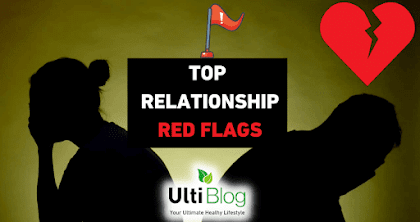Self-harm is an intricate behavior, often not fully understood. Those who inflict harm upon themselves, have difficulty explaining the relief or pleasure that follows each episode of infliction.
This article will help us learn more about why people hurt themselves. To understand why people might feel better after self-harming, we shall examine the science and psychology underlying it.
The science behind self-harm
Self-harm is described as purposeful bodily harm without suicidal thoughts. Common methods of self-harm include cutting, burning, and hitting oneself. Self-harm can feel good because it makes your body release special chemicals.
Endorphins help make the pain go away, and dopamine helps you feel happy. When someone hurt themselves, their body releases those chemicals which distract them from their negative emotions.
The psychology of self-harm
People who self-harm to hurt themselves have to cope with strong emotional pain. Even if they are unable to explain the reason behind the self-harm episodes, they use it explicitly to express how unpleasant their emotions are and see it as a way to punish themselves.
The physical pain behind self-harm can offer someone a sense of control and the physical sensation gives them a sense of relief from their emotional turmoil. The release of tension and the ability to take action to alleviate their emotional pain can be empowering and make an individual feel better for the moment.
Reasons why self harm is an option
- Physical pain lessens overwhelming emotions, such as anxiety or depression
- To take back control of your life
- Borderline personality disorder
- Self-punishment for perceived faults or mistakes
- Expressing intense emotions that are difficult to articulate in words
- Coping with trauma or past abuse
- Seeking relief from feelings of numbness or emptiness
- Coping with feelings of rejection or abandonment
- Seeking a distraction from emotional pain
- Coping with perfectionism or feeling like a failure
- Coping with pressures or expectations from others, such as academic or career-related stress.
The paradox of pain
The physical pain from self-harm is a temporary escape from negative thoughts or emotions, but it can also lead to problems in the future. You might have scars or get sick from infections.
People who self-harm can get addicted to it, and they might do more dangerous things to feel pain. When we inflict self-injury, the physical pain feels good for a little while. But in the end, it only creates a cycle of more physical and emotional pain.
It will only make you feel worse and more depressed.
Seeking help
Therapy
It is not just important to find a therapist who has the necessary experience working with individuals who practice self-harm, or non-suicidal self-injury, but also somebody you feel comfortable talking to. Therapy is not a quick fix, and it may take time to see some progress. It's important to be patient and committed to the therapy process, and Online Therapy help is a mere phone call away.
- Cognitive-behavioral therapy (CBT) is an evidence-based therapeutic approach that can be profoundly effective in treating self-harm. It helps people find and change any bad thoughts or behaviors that might be causing the self-harm.
- Dialectical behavior therapy (DBT) is a type of therapy designed to help people who hurt themselves and act impulsively. DBT helps people learn how to be mindful, control their emotions, tolerate difficult times, and understand how to talk with others.
- Family therapy provides an opportunity for people who have experienced trauma and struggle to communicate with their family members effectively, to heal. It can make it easier to talk, fix problems, and make the family stronger.
Medication
Individuals who suffer from symptoms of depression, anxiety, or other mental health issues may require medication to help them stop hurting themselves.
Self-care activities
- Exercise
- Meditation
- Spending time in nature
- Journaling
- Engaging in hobbies or activities that bring joy
Conclusion
Breaking the cycle of self-harm can be difficult, but it is possible. Find help and resources to understand why you have the urge of hurting yourself. Remember, there are always other people who understand and want to help.
FAQ
Is self-harm a mental disorder?
Self-harm is not a mental illness. But it can be connected to other mental health problems like depression, anxiety, or trauma. If you find that you practice self-harming, it is important to get help from someone who knows about this problem.
Is it possible to stop self-harming?
Yes! With emotional support and the right therapist, any person who experiencing emotional problems can learn how to handle those negative feelings and emotional pain the correct way.
References
- Cutting and Self-Harm: How to Feel Better without Hurting Yourself
- Discovery Mood & Anxiety Program: Psychology Behind Cutting Self Harm: Looking at the Underlying Causes
- PINE GROVE BEHAVIORAL HEALTH & ADDICTION SERVICES: 7 Reasons Why People Self-Harm & How to Get Them Help
- Mental Health Foundation: The truth about self-harm
- MayoClinic: Self-injury/cutting
- HSE Live: Things you can do to help yourself
https://bit.ly/42mKO4t

Comments
Post a Comment